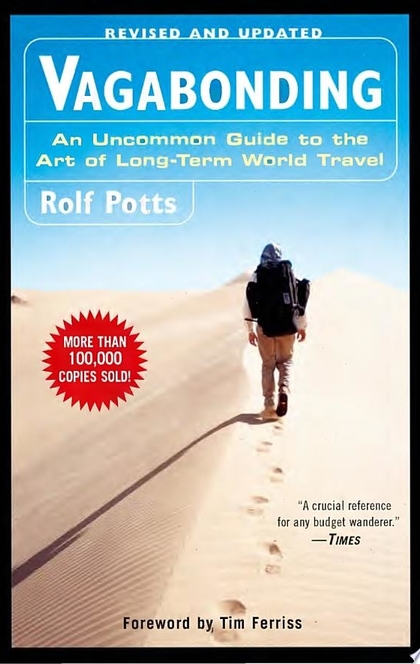Vagabonding
Updated:
7 Sep 2020
With a new foreword by Tim Ferriss • “Vagabonding easily remains in my top-10 list of life-changing books. Why? Because one incredible trip, especially a long-term trip, can change your life forever. And Vagabonding teaches you how to travel (and think), not just for one trip, but for the rest of your life.”—Tim Ferriss, from the forewordThere’s nothing like vagabonding: taking time off from your normal life—from six weeks to four months to two years—to discover and experience the world on your own terms. In this one-of-a-kind handbook, veteran travel writer Rolf Potts explains how anyone armed with an independent spirit can achieve the dream of extended overseas travel. Now completely revised and updated, Vagabonding is an accessible and inspiring guide to • financing your travel time • determining your destination • adjusting to life on the road • working and volunteering overseas • handling travel adversity • re-assimilating back into ordinary life Praise for Vagabonding “A crucial reference for any budget wanderer.”—Time “The book is a meditation on the joys of hitting the road. . . . It’s also a primer for those with a case of pent-up wanderlust seeking to live the dream.”—USA Today “I couldn’t put this book down. It’s a whole different ethic of travel. . . . [Potts’s] practical advice might just convince you to enjoy that open-ended trip of a lifetime.”—Rick Steves “Potts wants us to wander, to explore, to embrace the unknown, and, finally, to take our own damn time about it. I think this is the most sensible book of travel-related advice ever written.”—Tim Cahill, founding editor of Outside




